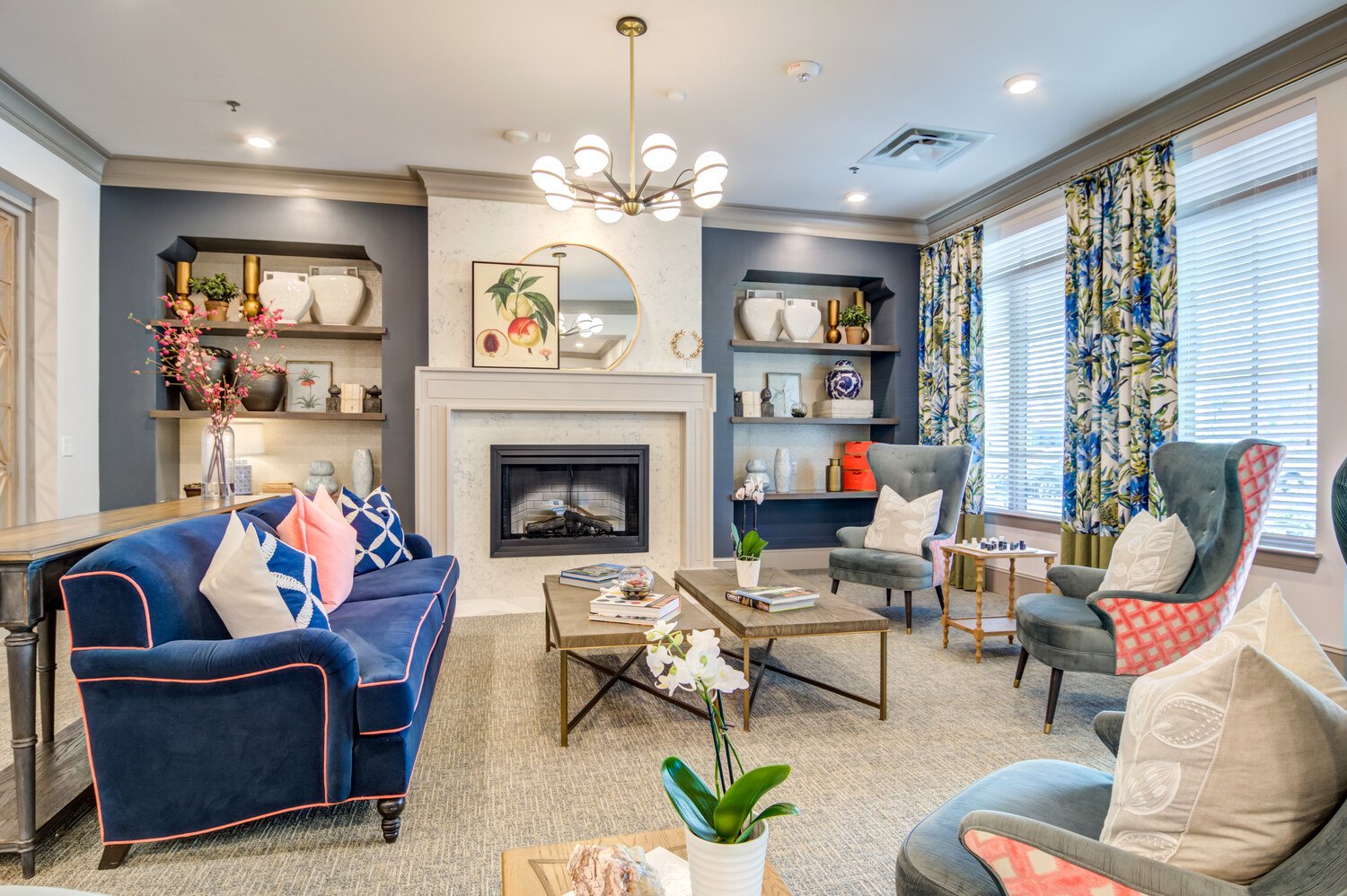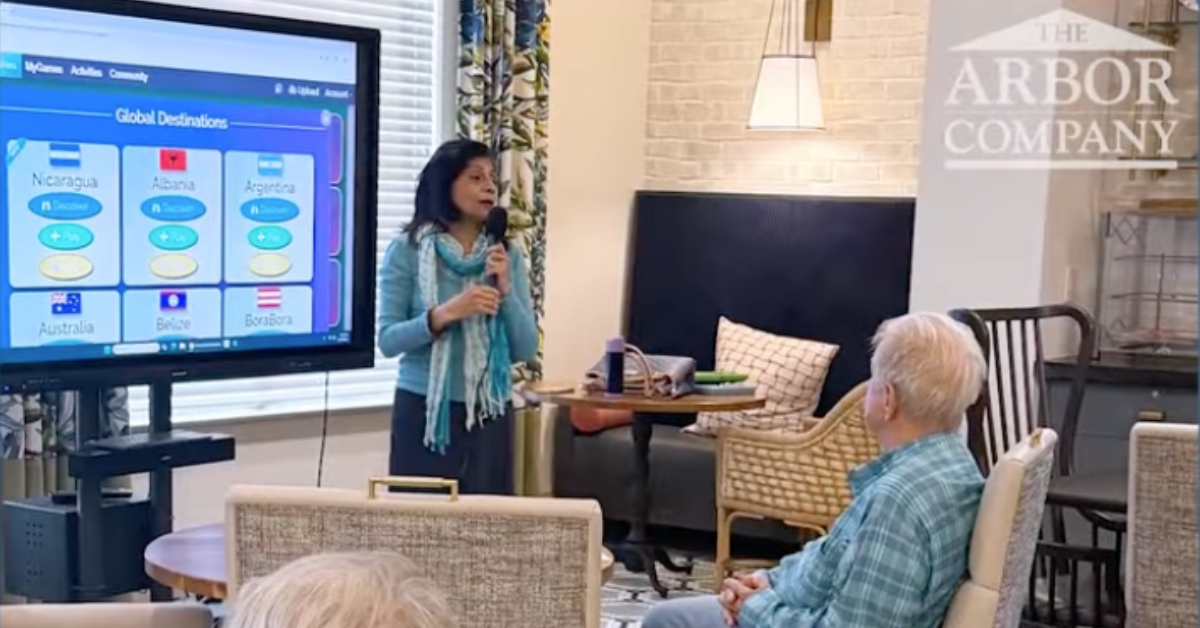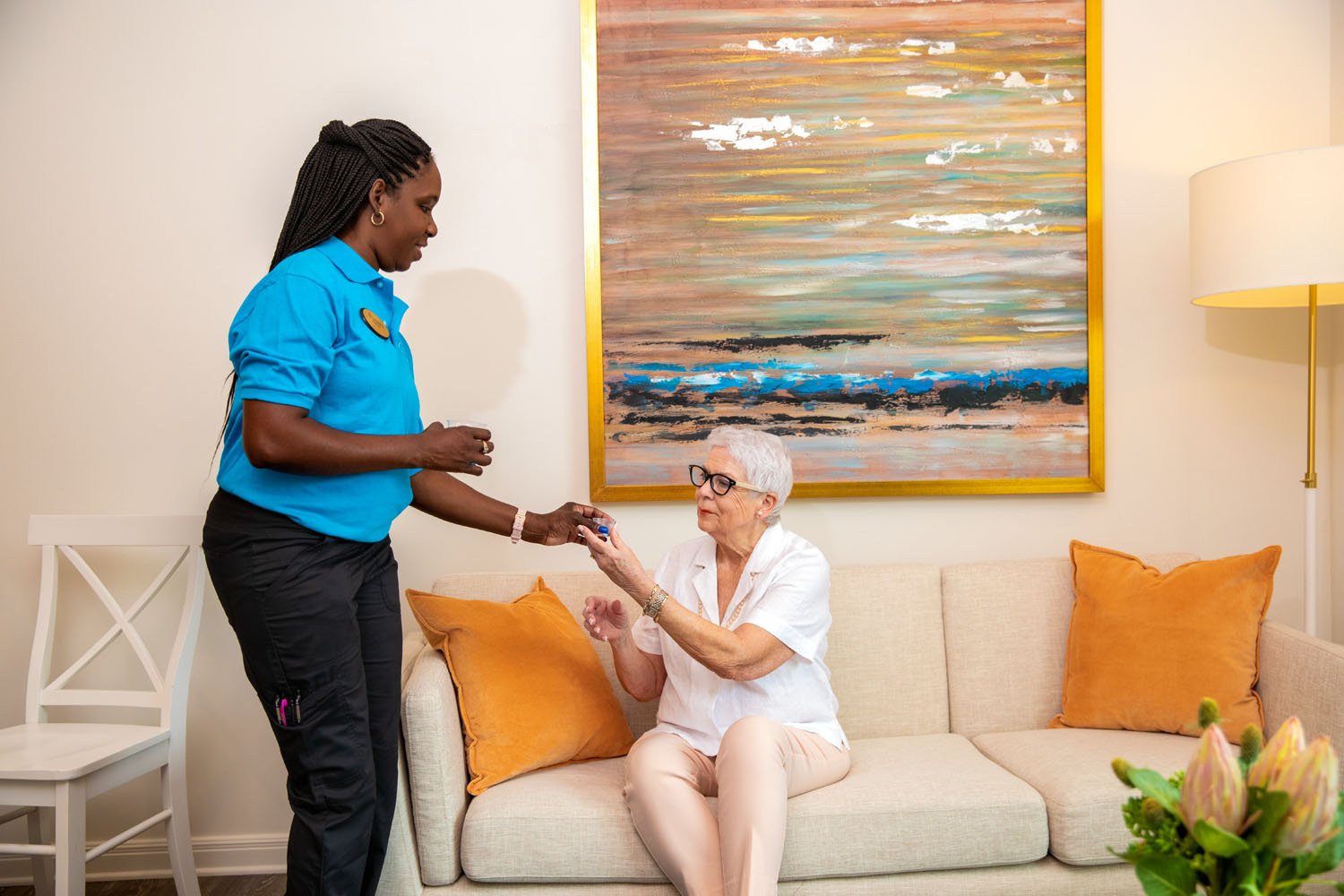Community News Energy Star-Certified at The Solana East Cobb
Excellence in senior living means caring for more than just our residents—it means caring for the world around us. That's why we're excited to share that The Solana East Cobb has earned Energy Star certification from the U.S. Environmental Protection Agency (EPA) for 2025!
Senior living, Community News A Season of Savings: Holiday Move-In Special at The Solana East Cobb
The holidays are a time for warmth and coming together, and for many families, it’s also a moment to consider the next step in supporting a senior loved one’s well-being. At The Solana East Cobb, we’re welcoming the season of giving with a special opportunity designed to make that transition easier and more meaningful.
Community News The Solana East Cobb Brings Memories to Life With SingFit
What a joyful and meaningful moment it was at The Solana East Cobb as our residents experienced the magic of music through our new SingFit program — a moment so special it was featured on FOX 5 Atlanta!
Senior living Finding Senior Living in East Cobb: The Importance of Involving the Whole Family
When families in Marietta begin exploring senior living options, one decision makes all the difference: bringing everyone to the table. Choosing a community isn't just about logistics or care needs—it's about honoring your loved one's happiness while strengthening family bonds through open, collaborative conversation.
Senior living, Lifestyle Introducing Minni: A Dedicated Volunteer at Solana East Cobb
At Solana East Cobb, we believe community is built on connection, and few people embody that spirit more than Minni, one of our most dedicated volunteers. Since our doors first opened in 2019, Minni has been a familiar, friendly face—bringing laughter, energy, and warmth to residents each week.
Senior Health Understanding the Continuum of Care at the Solana East Cobb
When it comes to exploring senior living options locally in Marietta, GA, one of the most crucial concepts families encounter is the “continuum of care.” At a top-rated senior living community, The Solana East Cobb, this continuum is much more than just a model to follow; it represents a core promise made to all who call our heartwarming community home.
Assisted living Holistic Care as Senior Care in Marietta, GA
As families begin exploring senior living options, many are finding that traditional models of care—focused solely on physical health—are no longer enough. For seniors to truly live their best life, they need more than medication management or extra help with daily tasks. What they need is a comprehensive sense of purpose, connection, and the opportunity to experience joy in everyday life. That’s where holistic senior care comes in.
Caregiver Resources Meet Jamie Charles at The Solana East Cobb
At The Solana East Cobb, our community thrives on the bonds between seniors and caregivers. Our energetic engagement director, endearingly nicknamed the "Energizer Bunny," pours her heart into creating vibrant and meaningful activities that bring joy to everyone. Inspired by her close relationship with her grandmother, she found her calling in senior living and now considers each resident a new grandparent.
Assisted living The Advantages of Marietta Assisted Living Communities for Seniors Living with Disabilities
Choosing the right care environment for a senior loved one with a disability is about finding a place to call home that balances safety, accessibility, and personalized care while also providing opportunities for social engagement and emotional well-being. Premium assisted living communities in Marietta, GA, excel in meeting these needs, making assisted living the most ideal option for those navigating the challenges of living with a disability.
Dining What to Expect When Evaluating the Dining Program at a Memory Care Community in Marietta
When searching for the right memory care community for your loved one, many families focus on key aspects like safety, specialized care, and amenities. However, one important element that is sometimes overlooked is the dining program. Each meal in a memory care setting must not only contribute to seniors’ physical health but also enhance emotional well-being and provide opportunities for connection among friends and neighbors. Especially for residents who may face cognitive challenges, an effective dining program can play a crucial role in maintaining their dignity, independence, and quality of life.









